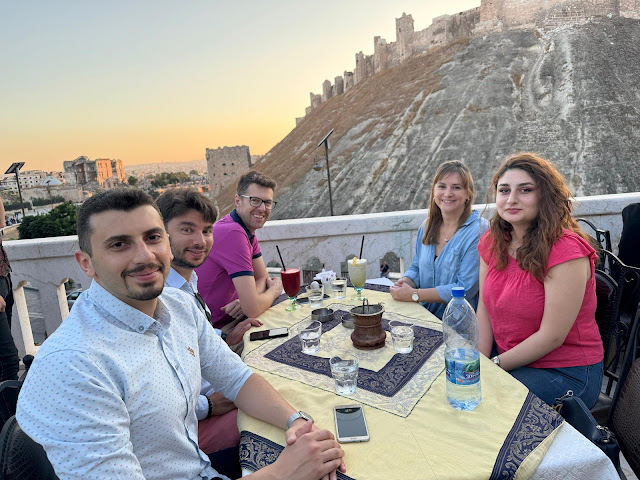Earthquakes, Civil War and the Things Before
Early on the morning of 9th November, as the Fajr morning call to prayer was ringing out, we experienced our first noticeable earthquake in Syria. Earthquakes are not uncommon here, and most are not felt at all. However there are still several measuring more than 4 in the Richter scale every year. This one had a magnitude somewhere around 5 and was experienced by us as an eerie shaking of our room which made the coat hangers in the wardrobe rattle, but nothing more dramatic. It was an interesting experience for us who have not lived in places where seismic activity is normal, but for our staff and many of the residents in Aleppo it was a scary reminder of the series of earthquakes measuring up to 7.8 that struck the city on 6th February this year. Whilst this one lasted only a few seconds, it was enough of a shock to many to encourage them to grab their children and run out into the street in case a stronger quake followed. Talking to our colleagues in the office later that morning it was clear that although they were relieved that it had only been small and could laugh about it, there is still a deep fear in many of them that they could experience another big one and that this is something they live with.
In the last month we have travelled across the country a few times and seen the evidence of the other big event that scars the lives of everyone here: the civil war. The war rumbles on away from the main population centres, but even if active fighting is far in the distance, the effects of this conflict are very much on display. In Aleppo there are parts of the city that are largely destroyed and abandoned, but life goes on for most of the city as a whole.
However, despite these stark reminders of what this country has experienced over the last decade and more, some parts remain untouched. Recently we were fortunate to join our international colleagues for an overnight retreat at the Monastery of St. Moses (Mar Musa) in the mountains north of Damascus. Driving through the desert into barren hills, there was no sign of anything much, and then the road turns north and there up on the hillside is a 6th century monastery, blending into the light brown rock. The only approach to the monastery is up a flight of stairs ensuring that even in the cool November mountain air, everyone arrives at the door sweating and short of breath!











Comments
Post a Comment